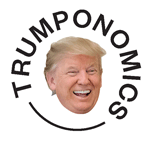
Politics has completely devoured the American economy.
Not much has changed economically since President Donald Trump was sworn in last month. The most important economic update showed the U.S. economy churned out another 227,000 jobs in January, helping to pull more people back into the job market. That was a better-than-expected number and it continued the longest consecutive stretch of job growth on record.
Videos by VICE
But the Republican outlook on the U.S. economy has changed radically, almost overnight, with the election of Donald Trump, whose promises to bring back wealth and manufacturing jobs rang like a bell to Americans in Rust Belt states like Wisconsin, Ohio, and Michigan that pushed him to victory.

The share of Republicans now saying that the economy will be better next year has surged to roughly 75 percent in the wake of Trump’s win. Democrats have gotten more pessimistic, with just 14 percent expecting the economy to be better next year.
Of course, partisan feelings have long been known to shape the way Democrats and Republicans think about the health of the economy. But those who study these things suggest that partisanship has become a stronger force in recent years, with people saying the economy is doing well or poorly based largely on whether the party they prefer is in the White House.
But the effect with Trump has been massive. And it has bled over into other economic indicators. For instance, optimism among small-business owners — a cornerstone constituency for the GOP — has surged as well. And overall consumer confidence numbers also shot higher after Trump’s election, driven in part by a surge in confidence among Republicans.
In fact, in a note published along with the University of Michigan’s latest update on consumer confidence, economist Richard Curtin noted when the survey asked respondents to describe any recent news about the economy six in 10 mentioned Trump’s economic policies. (Those references were split down the middle as to whether Trump was an overall positive or negative.)
“These differences are troublesome,” Curtin wrote. “The Democrat’s Expectations Index is close to its historic low (indicating recession) and the Republican’s Expectations Index is near its historic high (indicating expansion).”




